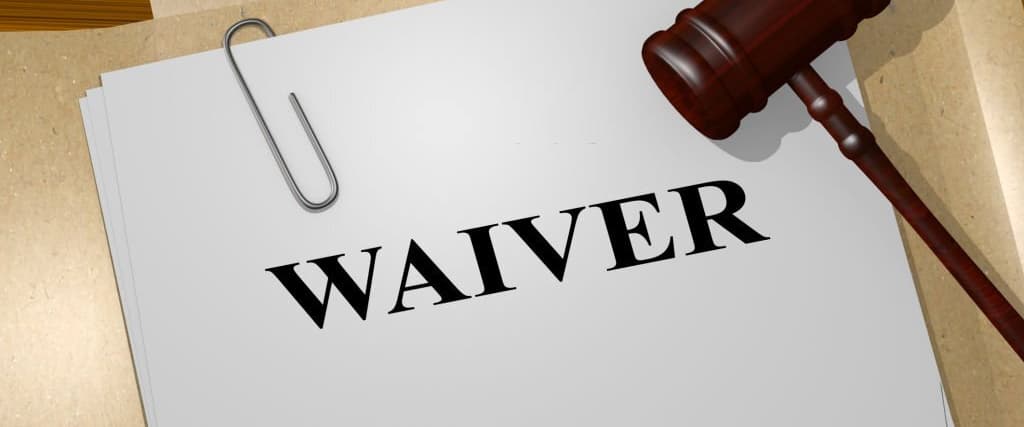In today’s interconnected world, legal documents like waivers play a critical role in protecting organizations and individuals from liabilities while outlining specific terms for participation in activities, services, or transactions. One such document that has garnered attention is the Waivers Sehla, a comprehensive framework aimed at balancing legal protection with transparency and clarity.
This article explores the intricacies of Waivers Sehla, its purpose, applications, and key elements while shedding light on how it ensures legal safeguards and fosters trust among parties.
What Are Waivers Sehla?
Waivers Sehla are legal agreements designed to release an entity (such as an organization, company, or individual) from certain liabilities. These documents are typically used in contexts where there’s potential for risk, ensuring that the party offering a service or activity is not held responsible for specific issues, provided all terms are followed.
Key Objectives of Waivers Sehla
- Liability Protection: Shields businesses and service providers from lawsuits or claims stemming from unforeseen events.
- Transparency: Ensures participants understand risks associated with an activity or service.
- Informed Consent: Establishes that individuals voluntarily accept risks before engaging in an activity.
Applications of Waivers Sehla
Waivers Sehla are widely used across industries and situations where risk management is essential.
1. Sports and Recreation
In activities like hiking, skiing, or gym workouts, participants sign waivers to acknowledge risks and absolve organizers of responsibility for injuries resulting from normal activity.
2. Events and Entertainment
Concerts, festivals, or amusement parks often require attendees to agree to terms outlined in waivers, such as disclaimers for personal injury or property damage.
3. Medical and Wellness Services
Waivers Sehla are used in medical trials, wellness programs, and alternative therapy sessions, ensuring that patients or participants understand the procedures and potential risks.
4. Educational and Professional Settings
Field trips, internships, or workplace training programs use waivers to delineate responsibilities between organizers and participants.
5. Digital Services
Online platforms may include waiver clauses in their terms of service, particularly for user-generated content or interactions that carry inherent risks.
Essential Components of Waivers Sehla
For a waiver to be effective and legally enforceable, it must include certain key elements:
1. Clear Language
Waivers Sehla should avoid legal jargon, ensuring that the terms are easy to understand. Transparency enhances trust and reduces the likelihood of disputes.
2. Specificity of Risks
The document must explicitly outline potential risks or liabilities being waived, leaving no room for ambiguity.
3. Voluntary Agreement
It is crucial to establish that the individual signing the waiver is doing so voluntarily, without coercion or undue influence.
4. Identification of Parties
The waiver should clearly identify all parties involved, including the service provider, organization, or entity seeking protection and the participant agreeing to the terms.
5. Legal Jurisdiction
The document must specify the governing laws and jurisdiction under which the waiver is enforceable.
6. Comprehensive Coverage
An effective waiver will encompass all foreseeable scenarios while remaining adaptable to unforeseen circumstances.
Benefits of Waivers Sehla
Properly drafted waivers offer significant advantages to both organizations and participants:
For Organizations
- Reduced Legal Exposure: Waivers limit liability, protecting against lawsuits and financial losses.
- Enhanced Risk Management: Helps businesses operate smoothly, even in high-risk environments.
- Stronger Relationships: By fostering transparency, waivers build trust with customers and clients.
For Participants
- Clarity on Risks: Individuals can make informed decisions before engaging in activities.
- Personal Accountability: Encourages participants to take responsibility for their actions.
- Mutual Understanding: Sets clear expectations for both parties, reducing the likelihood of disputes.
Challenges and Misconceptions
While Waivers Sehla are effective tools, they are not without challenges and misconceptions.
1. Perception of Inequality
Some individuals view waivers as one-sided, favoring organizations over participants. However, a well-crafted waiver aims to create a balanced agreement.
2. Enforcement Issues
Courts may invalidate waivers deemed too broad, vague, or unfair. It’s essential for waivers to align with local laws and regulations.
3. Misunderstanding Terms
Participants may overlook or misunderstand key terms, leading to conflicts later. Clear communication and accessible language are crucial.
4. Overreliance on Waivers
Organizations should remember that waivers complement, not replace, robust safety measures and risk management practices.
How to Create Effective Waivers Sehla
Organizations can follow these steps to ensure their waivers are legally sound and effective:
1. Consult Legal Experts
Work with legal professionals to draft waivers that comply with local laws and address industry-specific risks.
2. Use Plain Language
Avoid complex legal terminology, ensuring that all parties can easily understand the terms.
3. Customize for Context
Tailor waivers to specific activities, services, or events, rather than relying on generic templates.
4. Regular Updates
Review and update waivers periodically to account for changes in laws, regulations, or operational practices.
5. Obtain Explicit Consent
Ensure participants sign waivers voluntarily, ideally after discussing risks and answering any questions.
Real-World Examples of Waivers Sehla in Action
Adventure Tourism
A zip-lining company uses Waivers Sehla to outline potential risks like minor injuries or equipment failure, ensuring participants are aware and accept these risks before embarking on their adventure.
Medical Research Trials
Pharmaceutical companies require participants in clinical trials to sign waivers, acknowledging experimental treatments’ potential side effects or lack of guaranteed results.
Fitness Centers
Gyms commonly include waivers in their membership agreements, protecting against claims for injuries sustained during workouts, provided safety guidelines are followed.
Future of Waivers Sehla
As technology and societal norms evolve, so too will the role and structure of legal waivers.
Digital Transformation
Online platforms are streamlining waiver processes through electronic signatures and interactive forms, making them more accessible and user-friendly.
AI Integration
Artificial intelligence may help draft personalized waivers based on specific user activities, improving clarity and reducing errors.
Global Standardization
Efforts to create standardized waiver frameworks across jurisdictions could simplify cross-border activities and reduce legal complexities.
Conclusion
Waivers Sehla are indispensable tools in today’s risk-aware environment, offering a practical means of protecting organizations and individuals alike. By fostering transparency, encouraging informed decisions, and promoting accountability, these legal agreements strike a delicate balance between freedom and responsibility.
As industries continue to evolve, Waivers Sehla will remain integral to navigating the complexities of liability and legal compliance, ensuring that trust and mutual understanding underpin every agreement.



